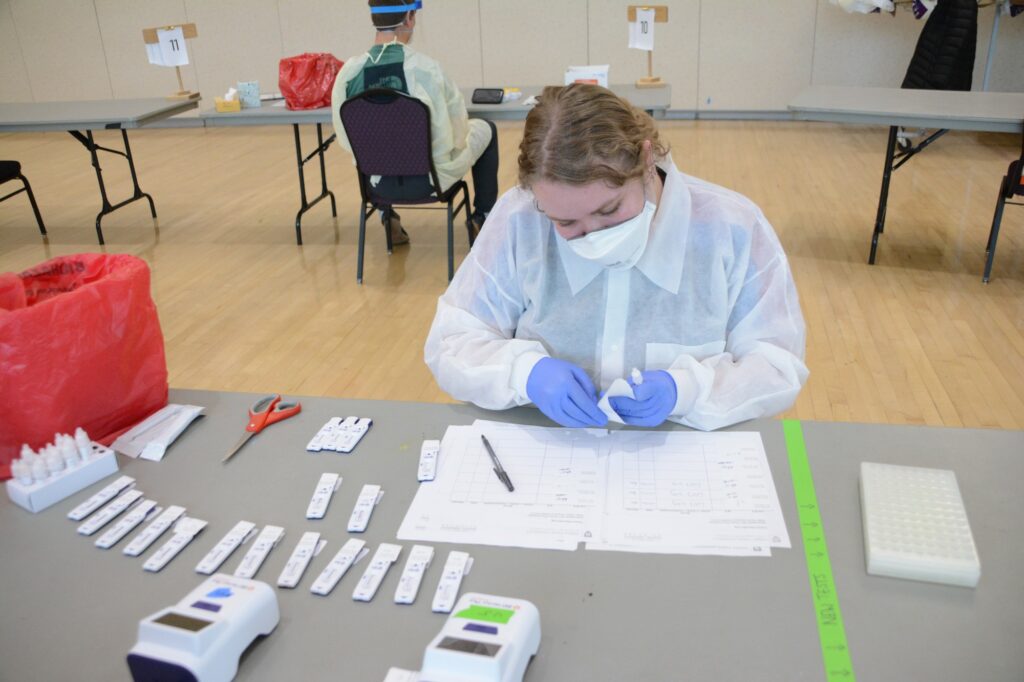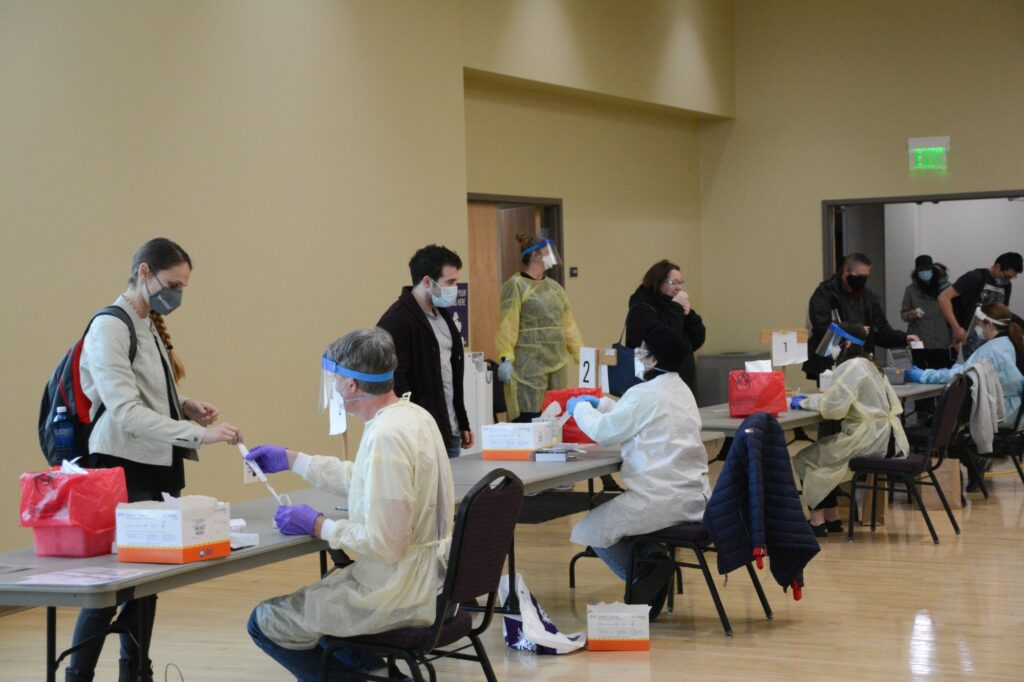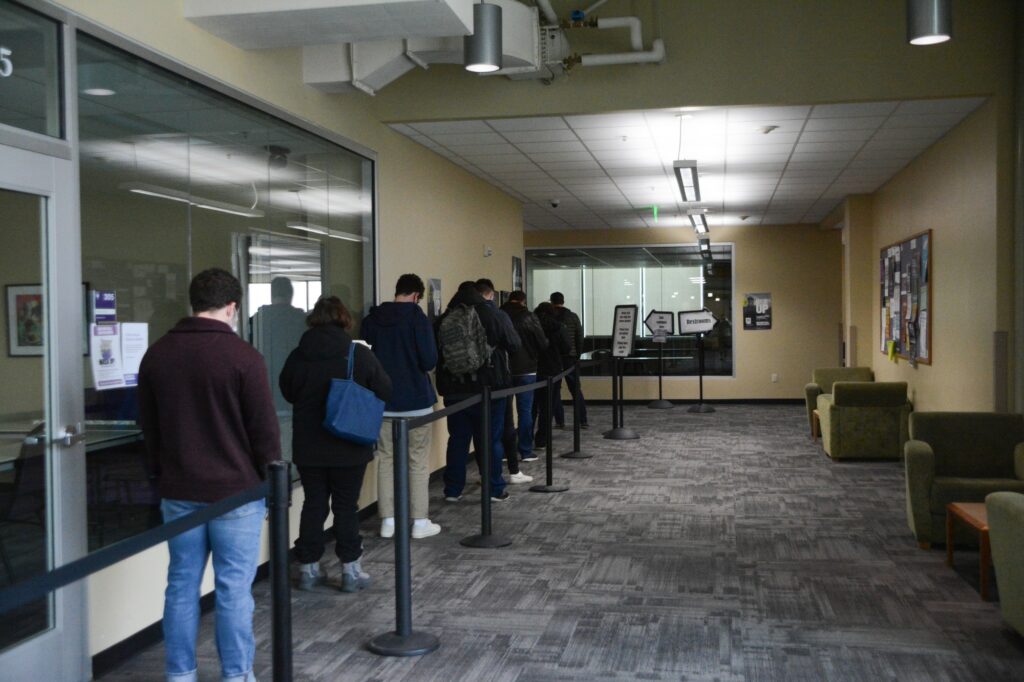
Starting Jan. 22, Weber State University’s COVID-19 Task Force and volunteers have been conducting random testing for the student body and campus community. According to WSU’s COVID-19 student resource site, the university hopes to administer 400 randomized tests each weekday and an additional 500 symptomatic tests weekly.
Staff and students have joined together and volunteered to help with testing, hoping all of the student body has been tested and that the campus stays as safe as possible.
The population of students who may be tested are all assigned a number, which is placed on an Excel sheet. This allows maintaining the randomness of those being selected. Once a student’s number is selected by Excel, they will receive an email in their Wildcat Email with instructions and information on how the testing process works.
WSU’s Public Safety Director, Dane LeBlanc, gives all of the credit to the students and staff who volunteered to get the testing process up and running smoothly. Unlike many of the swab tests students may have had or heard about last year, these tests are unobtrusive and provide quick results.
If a student’s result comes back positive, they will be notified within 15 minutes from when they took the test, while the negative test results take about two hours to receive.
“The governor’s order requires us to do random surveillance testing to monitor the spread of the virus at each of our educational institutions across the state,” LeBlanc said.
As far as state law goes, WSU is required to provide the testing information to the state, such as how many tests have been administered and the number of positive and negative results to help identify trends of the virus’s patterns. There is no choice in that, however, beyond that there is no sharing of test information.

“We do not share any information outside of that process,” LeBlanc said. “In other words, people’s information is protected.”
Student Body President Ben Ferney, who is a senior at WSU studying communications, explained that COVID randomized testing had been tossed around as a possibility for the university shortly after COVID-19 hit our community and WSU’s campus was forced to shut down.
Ferney spoke about the importance of having a community-oriented mentality as everyone finds their path through this pandemic. Ferney explained that it’s well worth taking some time out of one’s day to ensure their own safety, and that way, everyone can all be safe around each other on campus.
“The line might take ten to 15 minutes, but the minute you are at the front of the line, the test takes two minutes,” said Ferney. “If I was planning and budgeting my time and wanted to make sure that I budgeted it right, I would suggest students who receive the email notification for random testing would plan on 30 minutes, with checking in, and to go in for their random COVID-19 test.”
No one knows what the future will bring as far as COVID and its trajectory. So as of right now, there is not an end date to the testing, and keeping the community safe, whatever the cost, is a top priority for WSU as a whole.
WSU has a webpage dedicated to COVID-19 information for students, faculty or staff, to keep the public and community up-to-speed with what WSU’s COVID-19 procedures are.

Last November, the Governor mandated that all higher education institutions in Utah have ongoing, active COVID testing while the schools are open. Within a few hours of the governor’s mandate, WSU had over 300 volunteers and within a week’s time after that, WSU was already testing. Both LeBlanc and Ferney expressed their pride in seeing WSU come together during this crisis.
“We’re in a pandemic right now, and the best way for us to get through it is together and make sure everyone is safe,” Ferney said.



















